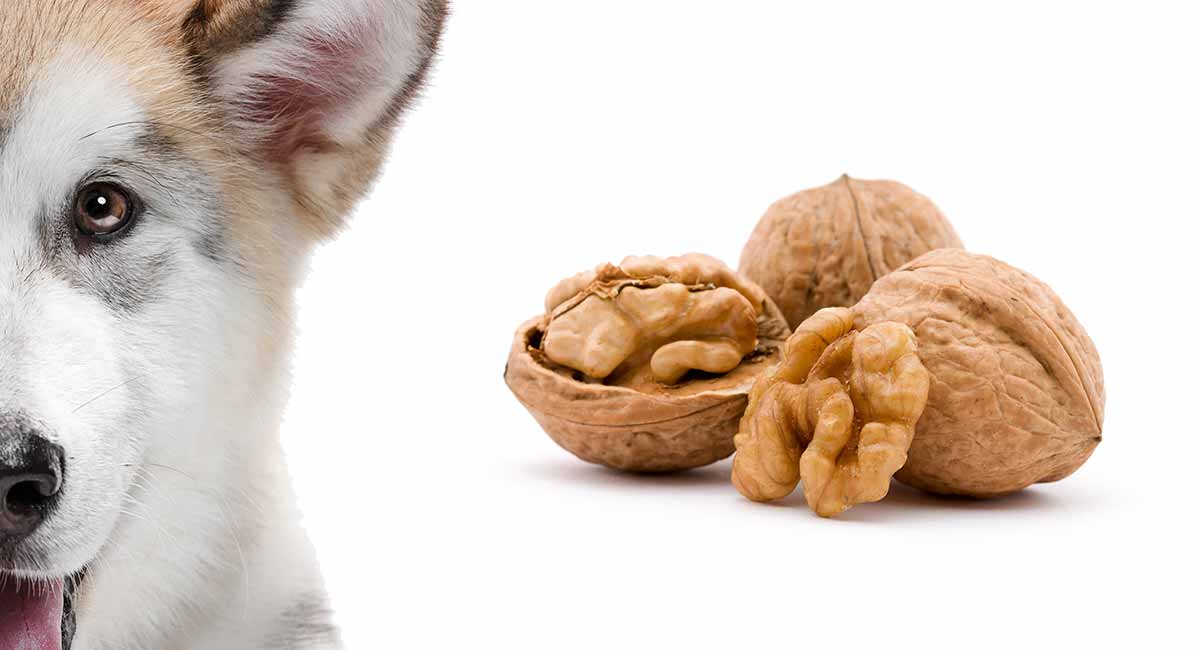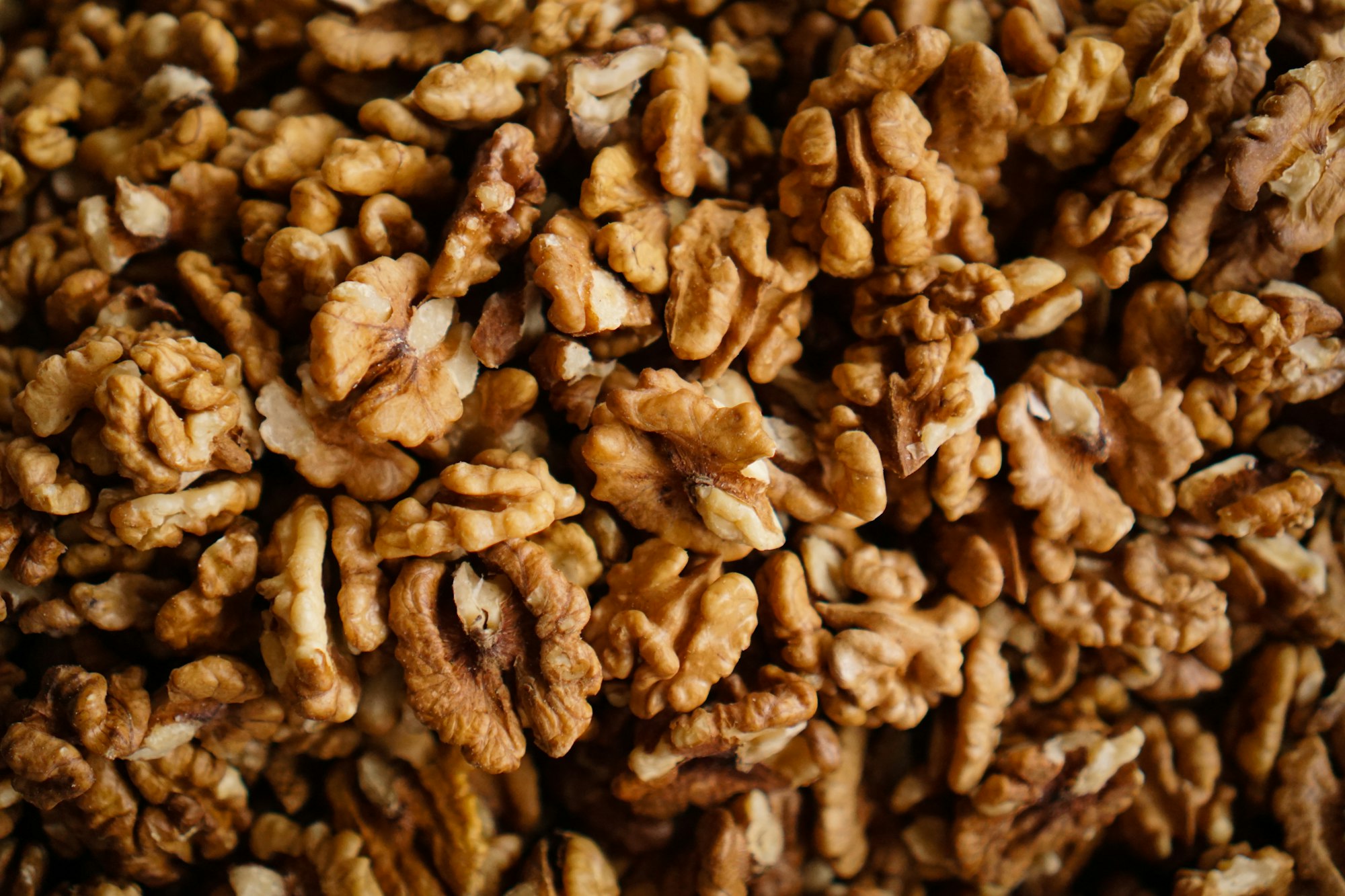When it comes to our pets' health, we always strive to provide them with the best care and nutrition possible. As responsible dog owners, we often wonder if certain human foods are safe for our canine companions. One such food that has gained popularity for its nutritional benefits is walnuts. In this article, we will explore the advantages and potential risks of feeding walnuts to dogs and understand how to incorporate them safely into their diet.

The Nutritional Value of Walnuts for Dogs
Walnuts are not just a delightful snack for humans; they also offer a range of nutritional benefits for our canine companions. These crunchy nuts are packed with essential nutrients that can support your dog's overall health and well-being. Let's explore the nutritional value of walnuts and how they can positively impact your furry friend.
Protein:
Walnuts are a good source of protein, containing essential amino acids that contribute to muscle maintenance and repair. Protein is crucial for dogs as it supports their growth, strengthens their immune system, and aids in the development of healthy tissues.
Healthy Fats:
Rich in healthy fats, particularly omega-3 fatty acids, walnuts provide a host of benefits for dogs. Omega-3s are known for their anti-inflammatory properties, which can help ease joint pain and reduce inflammation in dogs with conditions like arthritis.

Vitamins and Minerals:
Walnuts contain various vitamins and minerals that are vital for your dog's overall health. These include vitamin E, which acts as an antioxidant and helps protect cells from damage, as well as minerals like magnesium and phosphorus, which play a role in bone health and nerve function.
Fiber:
While not a significant source of fiber, walnuts do provide some dietary fiber, which can support healthy digestion in dogs. Fiber aids in regulating bowel movements and may help with gastrointestinal issues.
Caloric Density:
It's essential to be mindful of the caloric density of walnuts. While they offer numerous health benefits, they are also high in calories. Feeding walnuts in excess can lead to weight gain, especially in smaller breeds or good family dogs with sedentary lifestyles.
Antioxidants:
Walnuts are rich in antioxidants that combat harmful free radicals in the body. These antioxidants can help reduce oxidative stress and contribute to better overall health and longevity in dogs.

Moderation is Key:
While walnuts have several nutritional advantages, it's crucial to feed them to your dog in moderation. Too many walnuts can lead to digestive issues or an upset stomach. Additionally, the high fat content means excessive consumption can lead to pancreatitis in some dogs.
Precautions:
Before incorporating walnuts into your dog's diet, consider the following precautions:
- Always introduce walnuts gradually and monitor your dog for any signs of allergies or adverse reactions.
- Opt for plain, unsalted walnuts to avoid unnecessary sodium intake.
- Ensure the walnuts are chopped or ground into small pieces to prevent choking hazards.
- If your dog has a history of pancreatitis, it's best to avoid walnuts altogether.
Easing fear at the vet:
As with any new food, it's essential to consult your veterinarian before adding walnuts to your dog's diet. Your vet can assess your dog's individual health needs and provide personalized recommendations.
In conclusion, walnuts can be a nutritious and delicious addition to your dog's diet when offered in moderation and as part of a balanced meal plan. Their protein, healthy fats, vitamins, and minerals, along with antioxidant properties, can contribute to your furry friend's overall health and happiness. Always prioritize your pet's safety and well-being, and with the approval of your veterinarian, you can share the occasional walnut treat with your loyal companion.
Health Benefits of Feeding Walnuts to Dogs:
Walnuts aren't just a delightful treat for humans; they also offer several health benefits when added to your dog's diet in moderation. These nutrient-rich nuts can provide valuable advantages to your canine companion. Let's explore the various health benefits of feeding walnuts to dogs:
1. Omega-3 Fatty Acids for a Healthy Coat and Skin: One of the significant benefits of walnuts for dogs is their abundance of omega-3 fatty acids. These essential fats play a crucial role in maintaining healthy skin and a lustrous coat. Regular consumption of walnuts can help reduce dryness, itchiness, and flakiness, leaving your dog's fur looking glossy and vibrant.
2. Brain Health and Cognitive Function: Omega-3 fatty acids are not just beneficial for the exterior; they also work wonders inside your dog's brain. These fats are essential for cognitive function, supporting memory, and learning abilities. Including walnuts in your dog's diet can contribute to better brain health and potentially slow cognitive decline in older dogs.
3. Anti-inflammatory Properties: Walnuts contain natural anti-inflammatory compounds, which can be beneficial for dogs with inflammatory conditions like arthritis. The anti-inflammatory effects may help alleviate joint pain and improve mobility in dogs with such conditions, enhancing their overall quality of life.
4. Antioxidant Benefits: Antioxidants are essential for combating harmful free radicals in the body. Walnuts are rich in antioxidants, which can help neutralize these free radicals and reduce the risk of chronic diseases. By incorporating walnuts into your dog's diet, you can support their overall well-being and potentially increase their lifespan.
5. Heart Health: The omega-3 fatty acids in walnuts contribute to heart health by reducing bad cholesterol levels and promoting good cholesterol. A healthy heart is vital for your dog's overall longevity and vitality.
6. Weight Management: Despite being calorie-dense, walnuts can be an excellent addition to your dog's diet for weight management. The combination of protein, healthy fats, and fiber can promote satiety, helping your dog feel full and satisfied with smaller portions.
7. Dental Health: Chewing on walnuts can help improve your dog's dental health by promoting teeth and gum strength. The act of chewing can also help reduce plaque buildup and tartar, contributing to fresher breath and healthier teeth.
8. Boosted Immune System: The vitamins and minerals present in walnuts, including vitamin E and zinc, can support your dog's immune system, helping them fight off infections and stay healthy.

Precautions:
While walnuts offer various health benefits, it's essential to take precautions when feeding them to your dog:
- Always offer walnuts in moderation, as excessive consumption can lead to weight gain and other health issues.
- Avoid giving your dog walnuts with added salt or seasonings, as these can be harmful to their health.
- If your dog has a history of allergies or digestive sensitivities, introduce walnuts cautiously and monitor for any adverse reactions.
- Opt for chopped or ground walnuts to prevent choking hazards.
Walnuts can be a nutritious and tasty addition to your dog's diet, providing a range of health benefits such as improved coat and skin health, enhanced brain function, and reduced inflammation. Remember to offer them in moderation and consult your veterinarian to ensure they align with your dog's specific dietary needs. With the proper precautions, you can enjoy the many advantages that walnuts can bring to your loyal and beloved furry companion.
Risks and Precautions
1. Choking Hazard: Whole walnuts are relatively large and can pose a choking hazard, especially for small or elderly dogs. It's essential to chop or crush the nuts before feeding them to your furry friend.
2. High-Fat Content: While the healthy fats in walnuts are beneficial, they are also high in calories. Feeding too many walnuts to your dog can lead to weight gain, which may contribute to obesity-related health issues.
- Allergies: Some dogs may be allergic to nuts, including walnuts. It's crucial to monitor your dog for any signs of allergies, such as itching, hives, or digestive issues, and consult your veterinarian if you suspect an allergic reaction.
Recommended Dosage
To reap the benefits of walnuts without overloading your dog with calories, it's essential to provide them in moderation. As a general guideline, small breeds can be given around one-fourth to half a walnut per day, while larger breeds can have up to one walnut daily.
Preparing Walnuts for Dogs
While walnuts offer numerous health benefits for dogs, it's crucial to prepare them safely and suitably to ensure your furry friend can enjoy them without any risks. Here are some essential steps to follow when preparing walnuts for dogs:
1. Remove the Outer Shell:
Start by removing the outer shell of the walnut. The outer shell can be challenging for dogs to digest and may present a choking hazard. Discard the shells properly to prevent accidental ingestion.
2. Break into Smaller Pieces:
After removing the shell, break the walnut into smaller pieces or crush it into smaller fragments. Chopping or crushing the walnuts makes them easier for dogs to chew and swallow, reducing the risk of choking.
3. Mix with Regular Food:
To incorporate walnuts into your dog's diet, consider mixing the crushed or chopped walnuts with their regular food. This allows your dog to enjoy the nutritional benefits of walnuts without overindulging.
4. Use as Occasional Treats:
While walnuts can be beneficial for dogs, they are calorie-dense and should be offered as occasional treats rather than a regular part of their daily diet. Moderation is key to preventing excessive calorie intake and potential weight gain.
5. Monitor for Allergies and Digestive Issues:
When introducing walnuts to your dog's diet for the first time, closely monitor them for any signs of allergies or digestive sensitivities. Look for symptoms such as itching, hives, diarrhea, or vomiting. If any adverse reactions occur, discontinue giving walnuts and consult your veterinarian.
6. Avoid Flavored or Salted Walnuts:
Avoid offering flavored or salted walnuts to your dog. Added flavors and salt can be harmful to their health and may lead to sodium toxicity.
7. Consider Health Conditions:
If your dog has any existing health conditions, such as pancreatitis or gastrointestinal issues, consult your veterinarian before introducing walnuts or any new food into their diet.
8. Store Properly:
Properly store walnuts in a sealed container to maintain their freshness and prevent them from becoming rancid. Rancid walnuts can be harmful and may cause digestive upset in dogs.
9. Variety is Key:
While walnuts offer excellent nutritional benefits, it's essential to provide your happy dog with a well-balanced and varied diet. Include other nutritious foods such as lean proteins, vegetables, and fruits to ensure they receive a wide range of essential nutrients.
10. Avoid Walnuts with Mold or Spoilage:
Inspect walnuts before serving to ensure they are fresh and free from mold or spoilage. Moldy or spoiled walnuts can be toxic to dogs and should never be given to them.
By following these preparation steps and guidelines, you can safely incorporate walnuts into your dog's diet and let them enjoy the nutritional goodness these nuts have to offer. Remember to prioritize moderation, and always seek the advice of your veterinarian to ensure your dog's diet is tailored to their specific needs and health requirements.

Other Nuts Safe for Dogs
While walnuts have excellent nutritional benefits, some other nuts are also safe for dogs in moderation. These include almonds, peanuts (unsalted and without the shell), and cashews. Always consult your veterinarian before introducing any new foods into your dog's diet.
Conclusion
Incorporating walnuts into your dog's diet, in moderation, can be a valuable way to boost their overall health and well-being. The omega-3 fatty acids and other nutrients in walnuts offer numerous benefits, including improved skin and coat health, enhanced brain function, and anti-inflammatory properties. However, it's crucial to be cautious about portion sizes and potential allergies. Always consult your veterinarian before making any significant changes to your dog's diet to ensure their safety and well-being.
Frequently Asked Questions (FAQs):
Q1: Can all dogs eat walnuts?
Not all dogs can tolerate walnuts, as some may be allergic to nuts. It's crucial to introduce walnuts gradually and monitor your dog for any adverse reactions.
Q2: Are there any nuts I should avoid giving my dog?
Yes, some nuts, such as macadamia nuts, can be toxic to dogs and should be avoided entirely. Always research before offering any new food to your furry friend.
Q3: Can I feed my dog walnut shells?
No, walnut shells can splinter and cause intestinal blockages or injuries to your dog's digestive system. Only offer the inner nut meat in a safe, crushed form.
Q4: Can walnuts replace my dog's regular food?
Walnuts should not replace your dog's balanced diet. They can be added as a supplement or treat, but their regular food should meet all dog nutrition requirements.
Q5: What should I do if my dog accidentally eats too many walnuts?
If you suspect your dog has consumed an excessive amount of walnuts or is showing signs of distress, immediately contact your veterinarian for advice and possible treatment.




